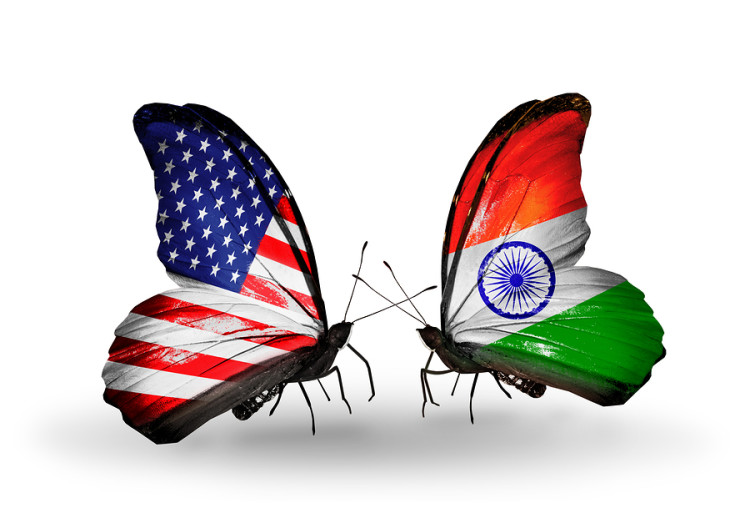Modi Is Different Nationalist Than Putin or Trump: Mihir Sharma

published Apr 4th 2017, 7:00 pm, by Mihir Sharma
(Bloomberg View) —
Over the past year, Russia’s Vladimir Putin has emerged as the ideological patron of a certain brand of conservatism worldwide. Politicians from France’s Marine Le Pen, to Recep Tayyip Erdogan of Turkey, to Donald Trump appear drawn to Putin’s vision of a world marked by weaker transnational power blocs, fewer meddlesome liberals and a harder line against radical Islam.
“A new world has emerged in these past years,” Le Pen said after meeting Putin at the Kremlin recently. “It’s the world of Vladimir Putin, it’s the world of Donald Trump in the United States, it’s the world of Mr. [Narendra] Modi in India, and I think that probably I am the one who shares with these great nations a vision of cooperation and not a vision of submission.”
Now, of course, the word “submission” signifies here not only a revolt against organizations like the European Union and NATO — both of which Le Pen has promised to withdraw from if she becomes France’s next leader — but is also a political dog whistle, code for Islam. But, let’s take Le Pen’s analysis at face value for a moment. Are Trump, Putin and Modi linked in this manner, and are they all natural partners of Europe’s far right?
They certainly have much in common. All three men share a notion that political Islam needs to be tackled more harshly. They all promise prosperity and economic dynamism, although so far they’ve discovered that stoking cultural nationalism is easier than creating jobs. They’ve all sold their populations on a patriotic nostalgia, the idea that it’s necessary to return to a golden age in which the state was stronger, and so was the nation. And the major villain in their various narratives of national decline is, usually, a liberal cosmopolitan elite.
But much of that is true, also, of China’s Xi Jinping. Yet he’s not on the list. Why not? The answer lies, of course, in the additional, crucial glue in this conservative “alliance”: the shared idea that internationalism is a trap to be avoided, that globalization impoverishes rather than uplifts, and that global institutions are inherently dangerous.
Xi’s China is hardly a paragon of virtue when it comes to upholding global norms. But it has unquestionably benefited from globalization. Xi himself has warned repeatedly against slowing the pace of global integration. This makes sense for China. It seeks to create more space for itself in existing global institutions, rather than to undermine them, since that would enhance its growing power. Indeed, it seeks to create more such institutions rather than fewer.
And that’s why Narendra Modi doesn’t belong on Le Pen’s list either. He certainly doesn’t believe in “submission,” but no Indian leader can any longer afford to turn his back on the world. It’s not just the fact that India needs enormous amounts of investment in infrastructure. Or that its feeble manufacturing sector needs to export if it’s to employ even a fraction of the million workers a month entering the labor force. It’s simply that, as with China, India sees that it can only raise its own national profile through global cooperation and global institutions.
For decades, India was “the country of no,” stubbornly resisting many forms of internationalism. Whether addressing human rights questions, or negotiations over trade and climate change, the Indian delegation tended to say “no” first and ask questions later. But that’s changed in the past decade. The Paris agreement on curbing carbon emissions, for example, came together partly because Modi sought to use it as an example of Indian global leadership.
Even more importantly, Modi doesn’t want to return to the past. Putin remembers when half the world looked to Moscow, and may want that world back. Trump may seek the tribute due a sole superpower, which the U.S. no longer seems to receive. Goodness knows what earlier Britain Brexiteers want to recover, probably some time when Lord Nelson was alive and nobody else had factories.
Modi likes to praise the virtues of ancient Hindu civilization (sometimes to comic excess). But, like Xi, he isn’t interested in a past in which the West dominated the world. He wants to build a future in which Asia does. And this, I suspect, isn’t at all what someone like Le Pen has in mind when she speaks of “a new world emerging.” Talk of a global turn toward conservatism is all very well. But let’s not exaggerate what it means for international relations.
This column does not necessarily reflect the opinion of the editorial board or Bloomberg LP and its owners.
Mihir Sharma is a Bloomberg View columnist. He was a columnist for the Indian Express and the Business Standard, and he is the author of “Restart: The Last Chance for the Indian Economy.”
To contact the author of this story: Mihir Sharma at m.s.sharma@gmail.comTo contact the editor responsible for this story: Nisid Hajari at nhajari@bloomberg.net
For more columns from Bloomberg View, visit Bloomberg view
COPYRIGHT
© 2017 Bloomberg L.P
NICODES







No Comment